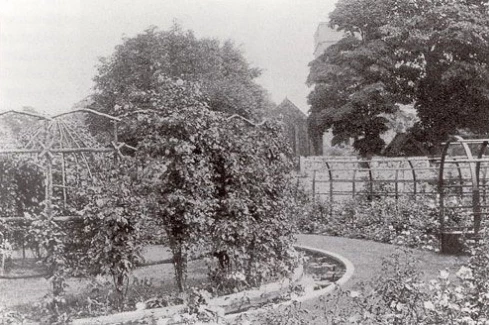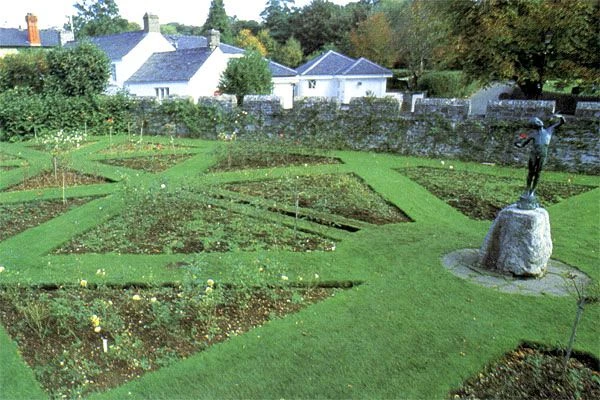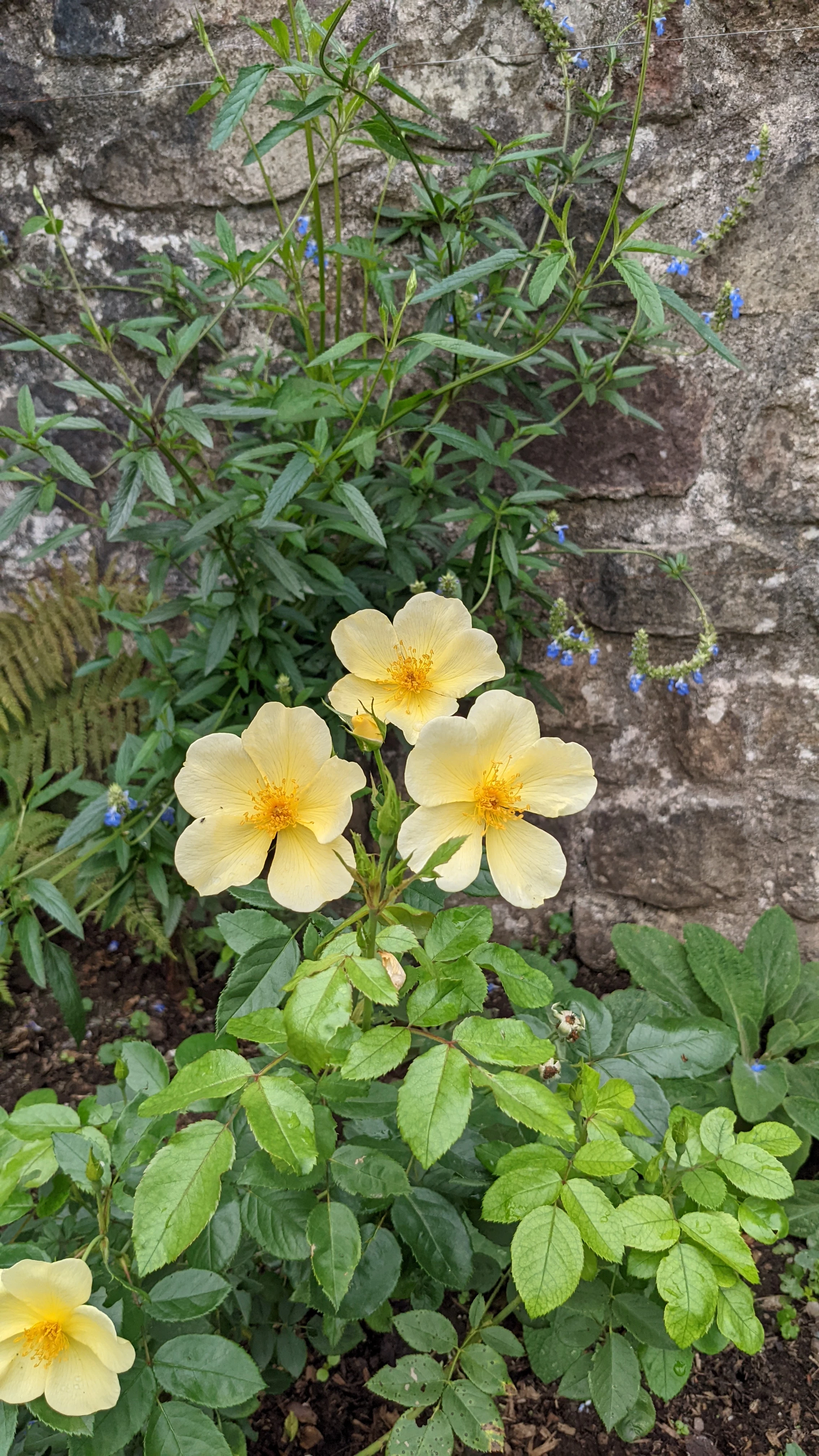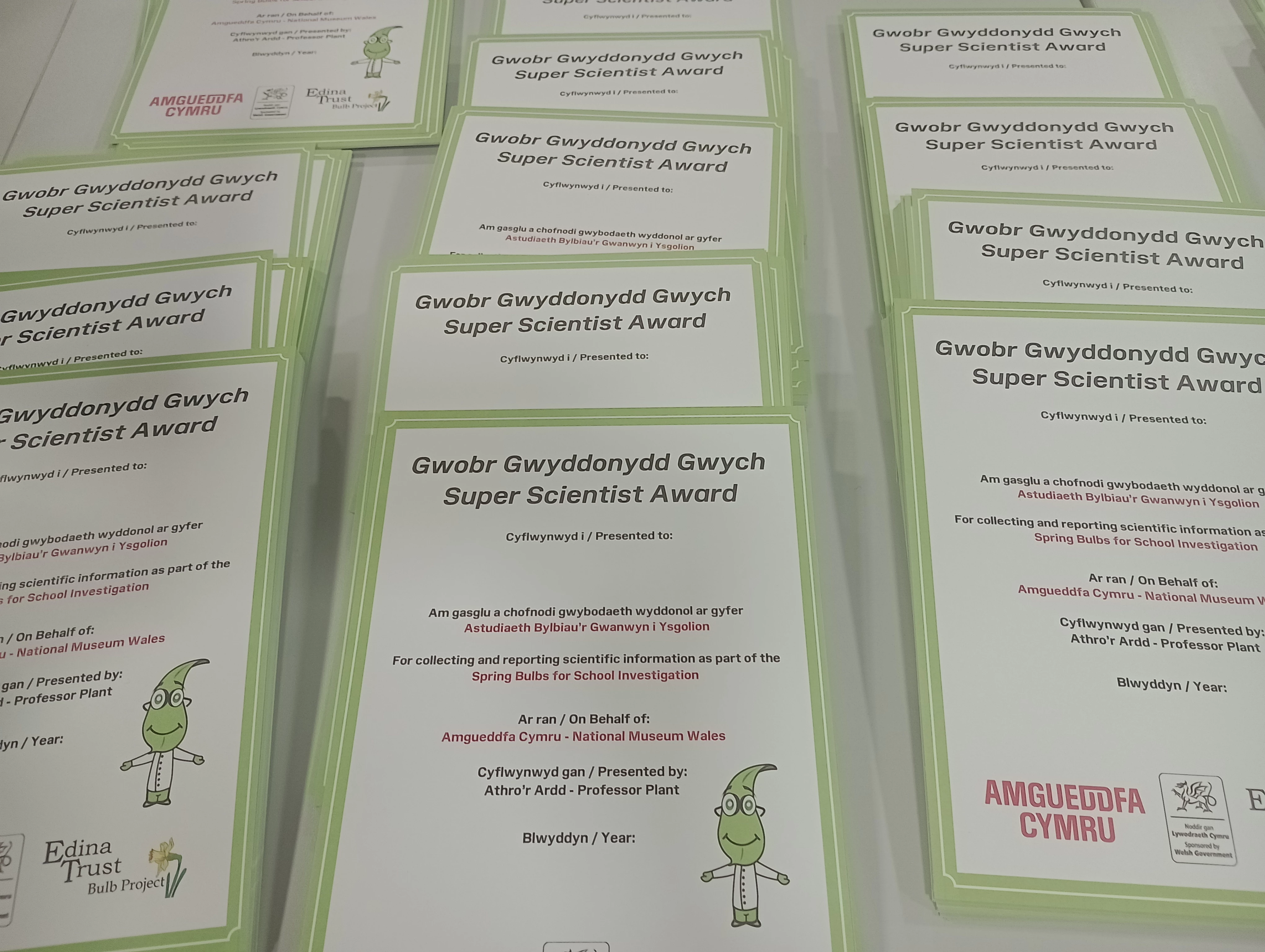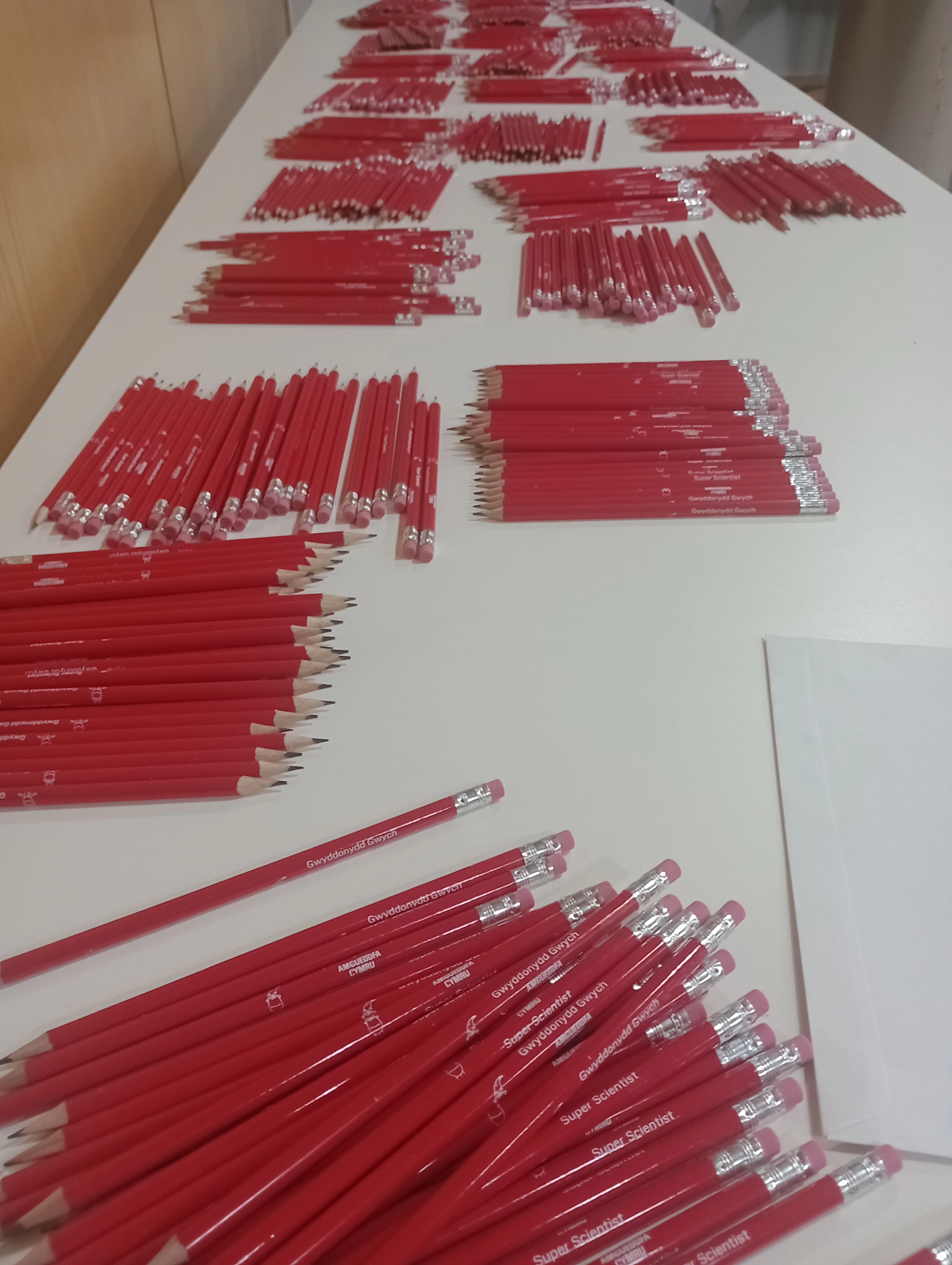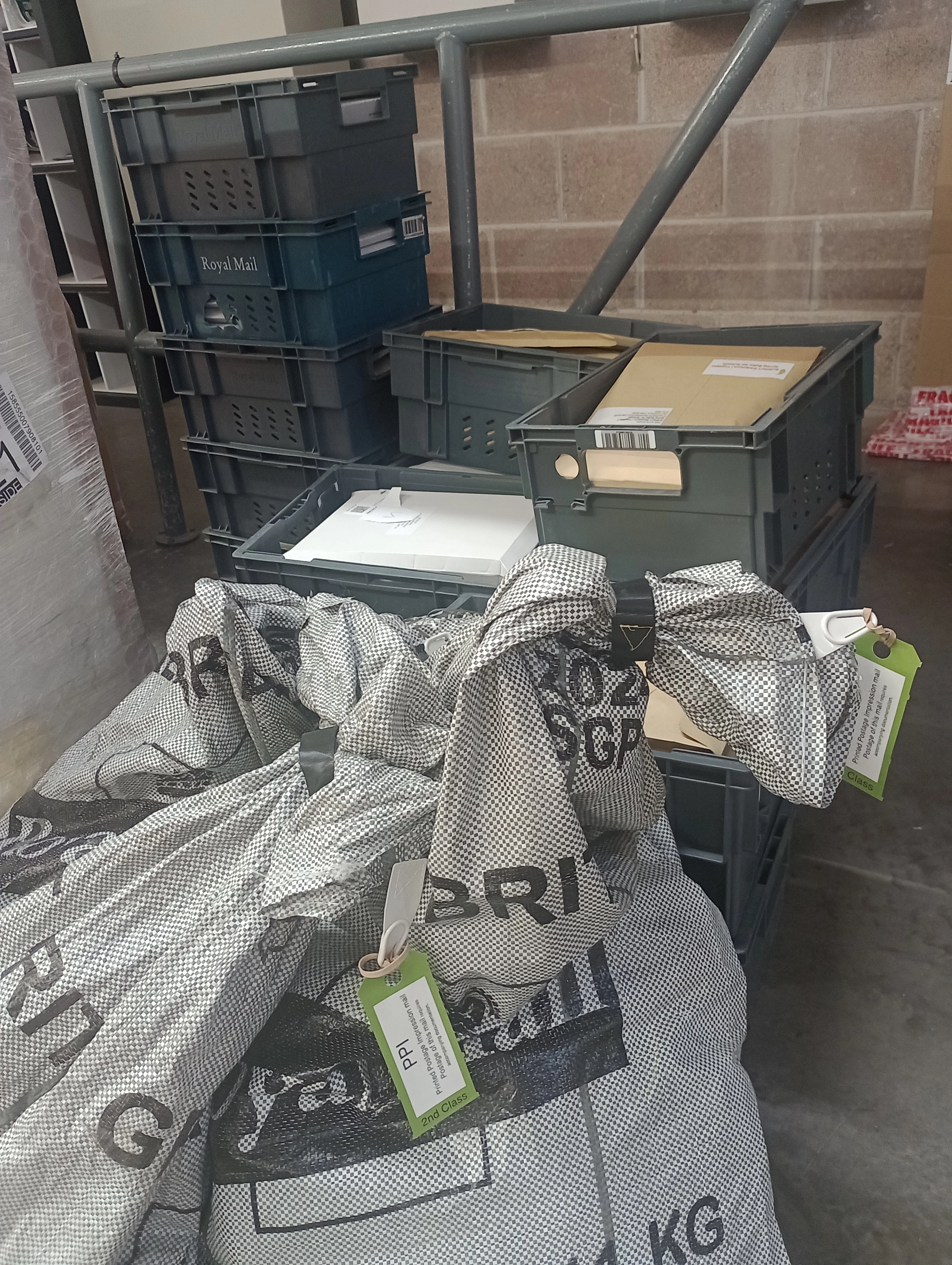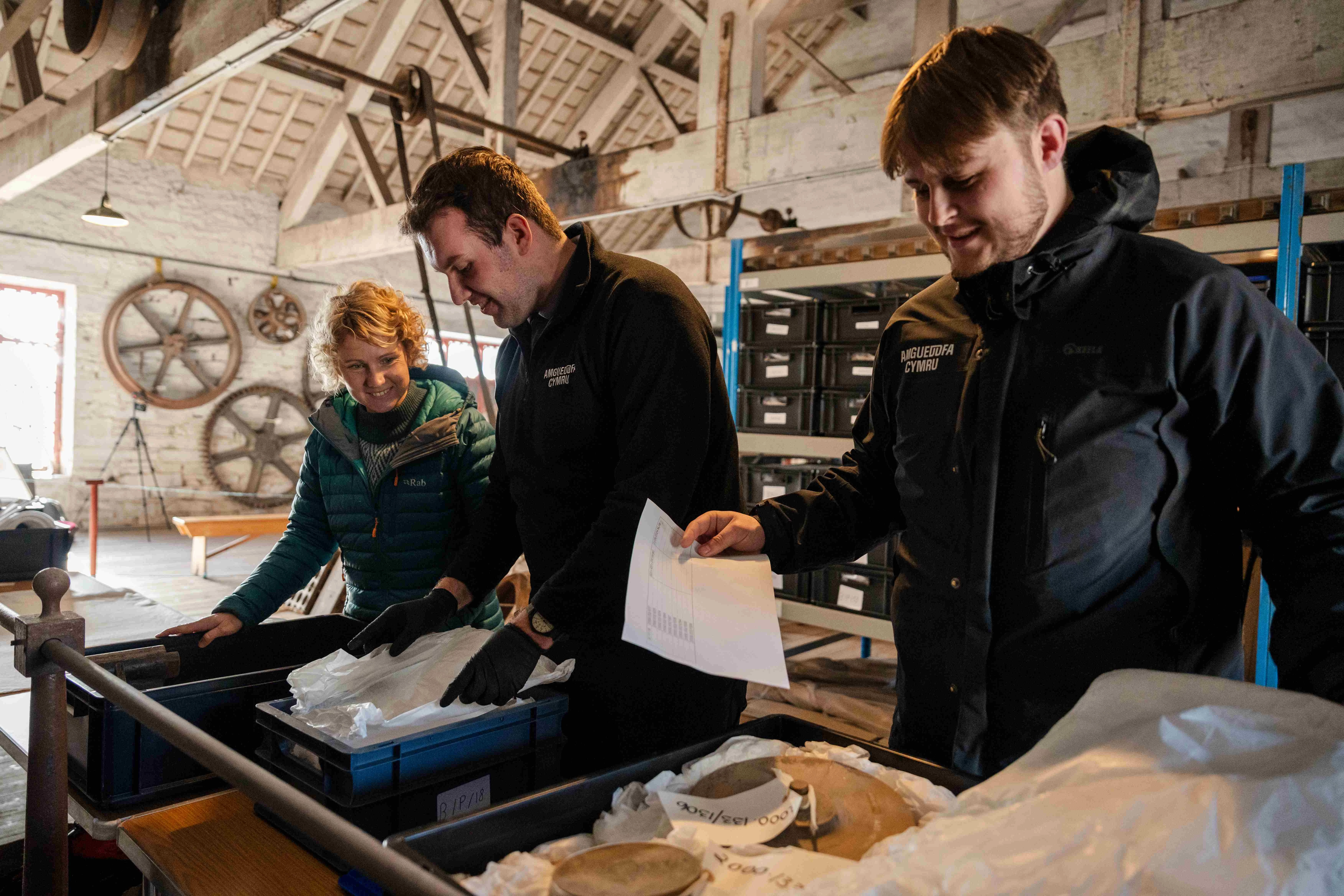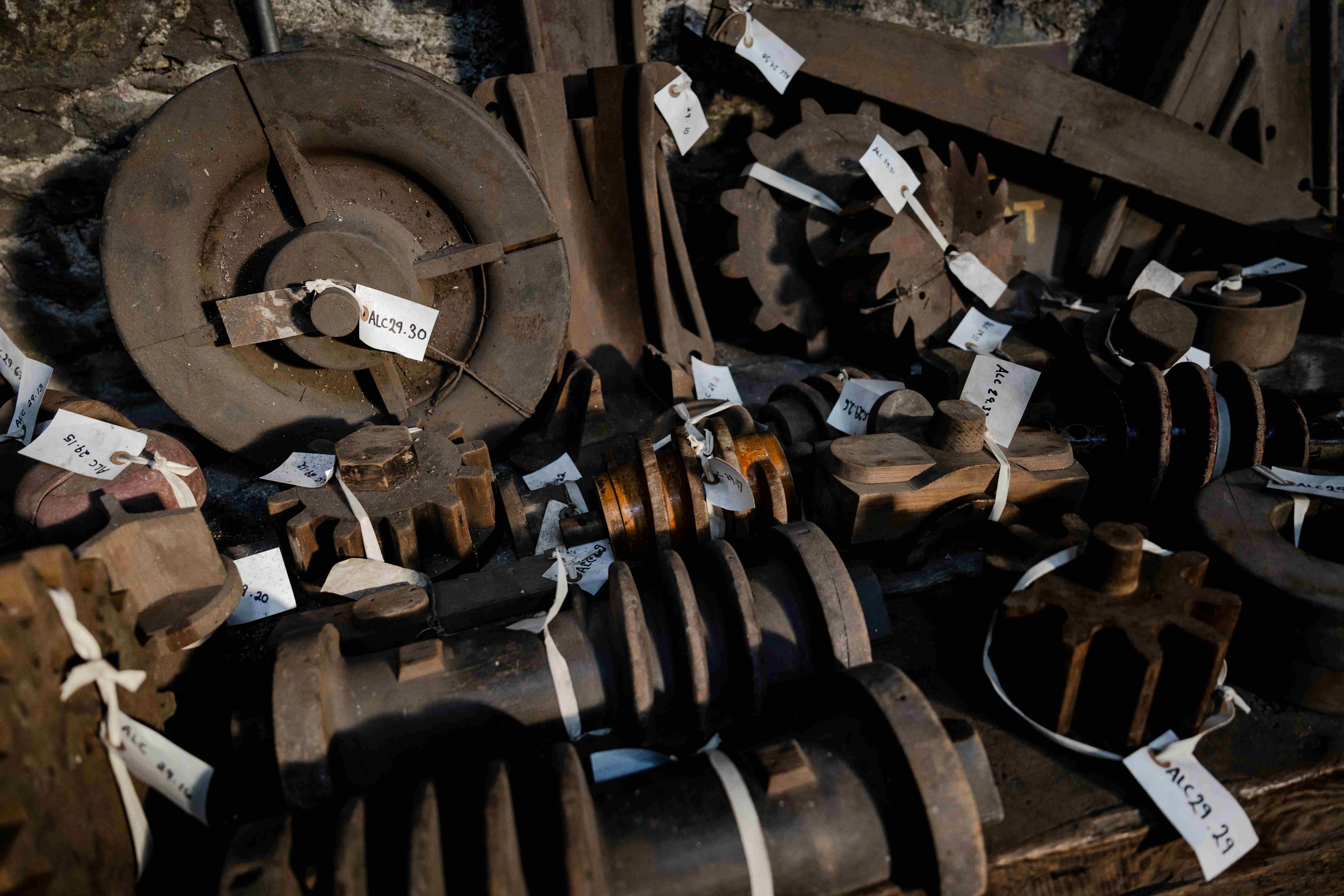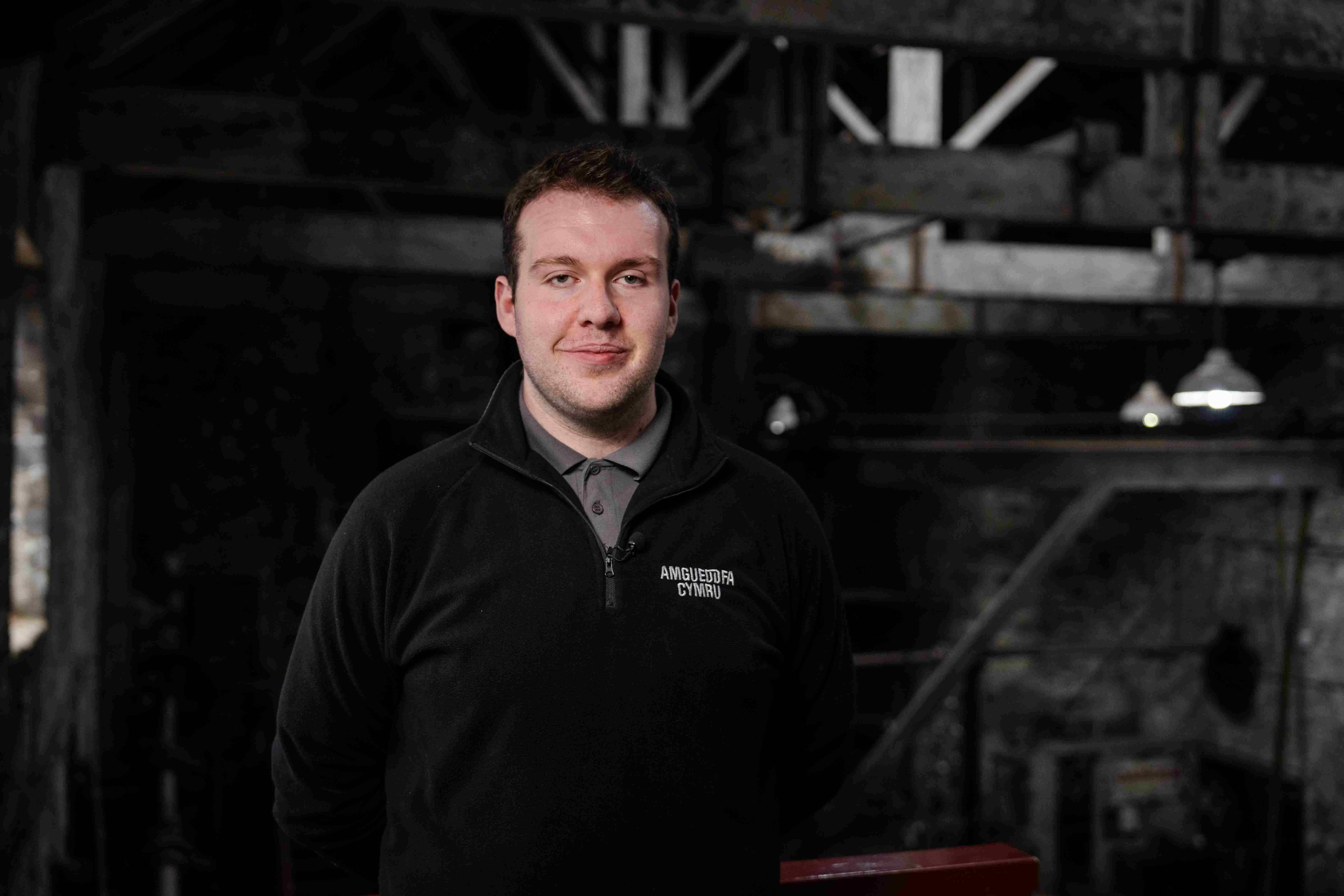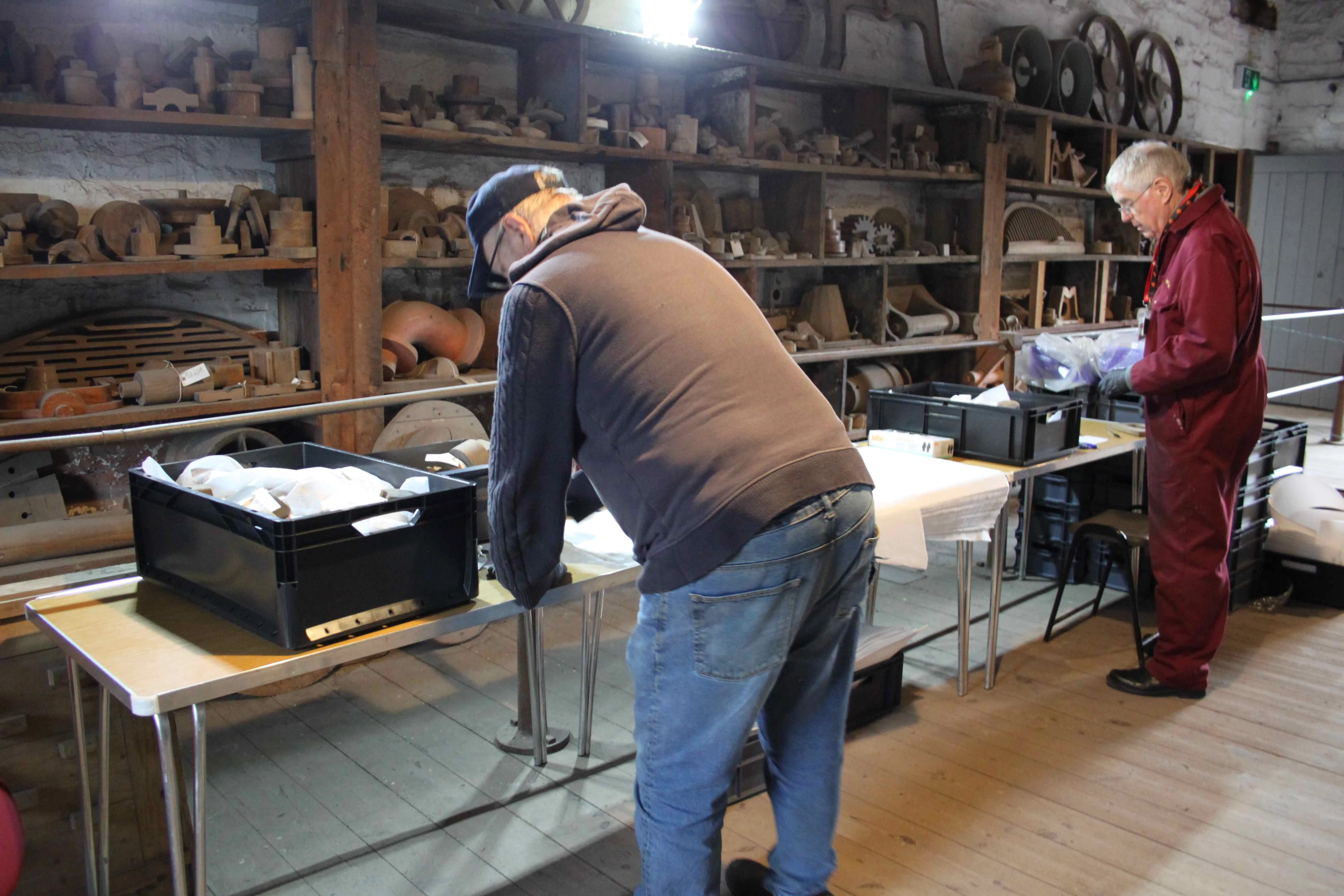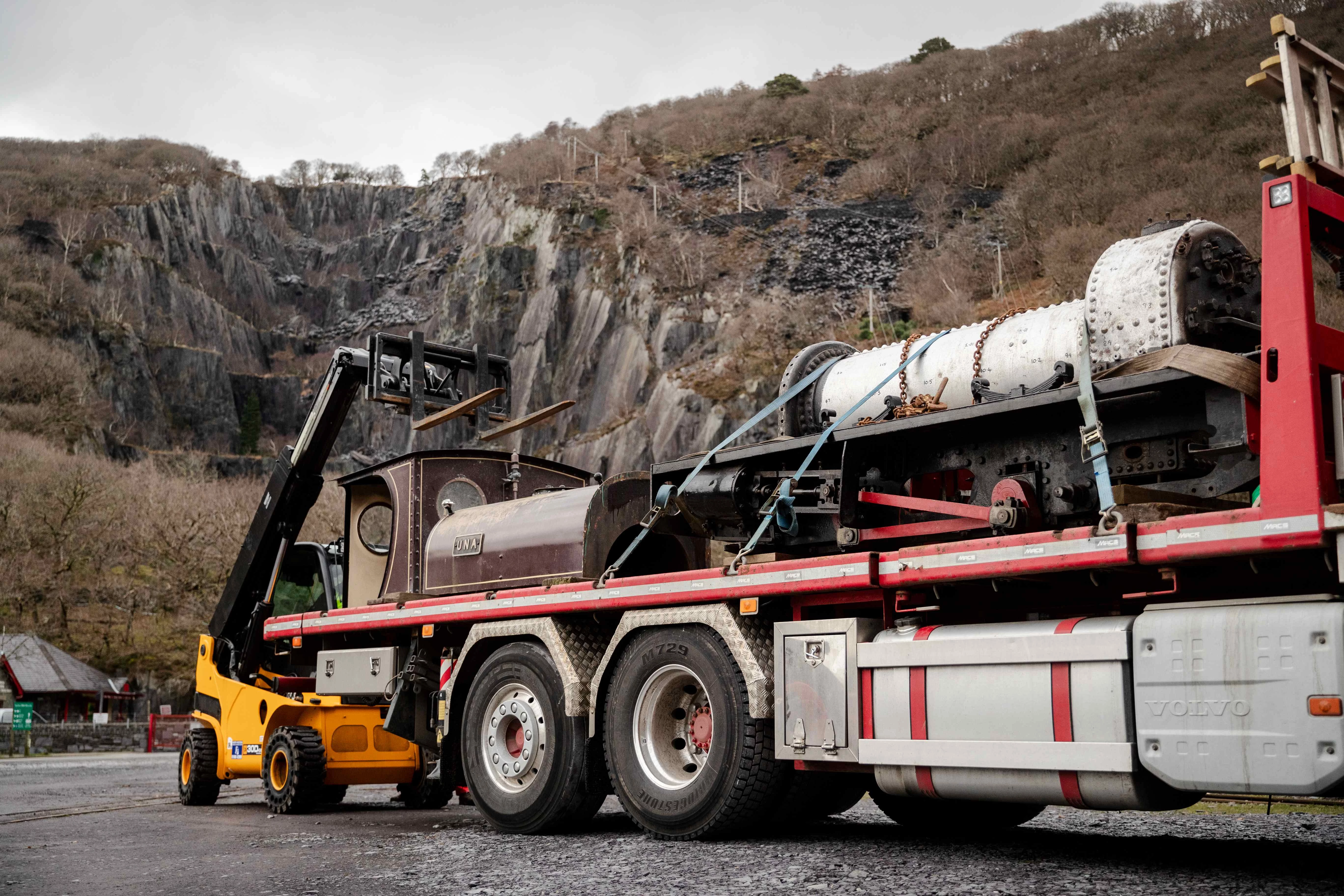Museum Voices: Victoria Hillman
, 29 May 2025
Victoria Hillman, Project Lead: Sustainable Development and Decarbonisation
Hi Victoria, can you introduce yourself and tell us a bit about your role here at Amgueddfa Cymru?
Of course! I was born and brought up in Cardiff, so, like many people, my earliest memories of Amgueddfa Cymru are school trips to St Fagans and Big Pit! The immersive experiences provided were so vivid and inspirational – especially as a child when your mind is open to all possibilities. A “few” years after these formative experiences, I was fortunate enough to join Amgueddfa Cymru in April 2024 as the Project Lead for Sustainable Development and Decarbonisation. My remit is organisation-wide, so I interact with all Museum sites and with every team. It’s a privilege being able to work with so many different people. Each site is unique and colleagues across the organisation are extremely knowledgeable and incredibly passionate about their roles.
I am responsible for ensuring Amgueddfa Cymru remains compliant with environmental legislation and for driving improvements in other aspects relating to environmental sustainability across the organisation. This ranges from looking at procurement practices, to how exhibitions are designed; from optimising environmental conditions within galleries to promoting active travel with staff and volunteers; from enhancing biodiversity to decarbonising the estate.
In the last 10 months, I have also worked part time on the sustainability aspects of the Redevelopment Project at the National Slate Museum. The design work is now complete, and May is the month when the site is handed over to contractors for construction work to begin – it’s a very exciting time for the project!
As citizens of the world, we know how crucial sustainability is, in practice. What can you tell us about the work we're doing at Amgueddfa Cymru to meet the targets set out across Wales?
Heat pump being installed in St Fagans
Indeed. Amgueddfa Cymru declared a climate emergency and a nature emergency in 2019. We have long taken our commitment to protecting the environment seriously, but since this important milestone, we’ve increased our efforts and provided inspiration for others to follow. Our 2030 Strategy set out six commitments, one of which was “putting the planet first”. This commitment underpins our desire to contribute to the Welsh public sector achieving carbon net zero by 2030. Across the estate, work has been on-going to reduce the consumption of fossil fuels by upgrading equipment to more efficient versions and by replacing heating systems with electrically powered alternatives (e.g. air source heat pumps). Over 5 years (2019/20 to 2023/24), the consumption of natural gas has reduced by 36%.
In addition to decarbonising the estate, Amgueddfa Cymru operates in a way that fully aligns with the requirements of the Well-being of Future Generations Act. Consideration of the five ways of working (Collaboration, Integration, Involvement, Prevention and Long Term) is embedded in internal processes and reporting.
You talk about ‘Putting the planet first’; what projects happening across our museums today are helping us create a sustainable Wales?
I’ve already mentioned the great progress in decarbonising the estate and that work is continuing thanks to funding made available by the Public Sector Low Carbon Heat Grant. From January to March 2025, eight buildings at four sites had fossil fuel heating systems (natural gas, LPG and oil) replaced with air source heat pumps. We have plans in place to carry out similar work in 2025/26, pending the approval of funding applications.
Our Roman Garden in the National Roman Legion Museum
On a larger and longer-term scale, there are two projects currently in the design stage which will embed sustainability in the culture sector over the coming 5–10 years. The first is the redevelopment of Roman Caerleon which is a joint effort between Amgueddfa Cymru, Cadw and Newport City Council. The project aims to maximise the potential of Caerleon’s Roman heritage while improving the visitor experience and attracting more people. One key to project success will be ensuring sufficient works are carried out in order to adapt the sites to the impacts that changing climate will bring. In a similar vein, the second project where a focus on climate change adaptation will be key is the redevelopment of National Museum Cardiff. It is no secret that the 100-year-old building has experienced challenges in recent times and there is no simple fix. A multi-disciplinary team has been established in order to plan the optimum way forward to both preserve and modernise this beautiful and iconic building.
From a people perspective, the really powerful internal project is the roll out of Carbon Literacy training. This started back in 2018 with a small group of dedicated individuals and has snowballed into hundreds of staff members being trained and becoming certified carbon literate. A key benefit of the Carbon Literacy training is that behaviour changes are encouraged at home as well as in the workplace – staff members who have taken the course see this as a strong selling point.
More broadly, daily work across the Museum contributes to a more sustainable Wales. Natural Sciences Curators carry out pioneering research, describe species and monitor invasive species; Curators and Conservators interpret and preserve items so that they can be understood by today’s visitors and enjoyed by future visitors; the Learning Team provide resources to inspire and stimulate enquiring minds; the Engagement Team offer a variety of accessible and inclusive activities and opportunities to people from across Wales; the Visitor Experience team use their extensive knowledge to answer questions and spark imagination in visitors… The list goes on.
We have the Senedd's Biodiversity Day, Endangered Species Day, International Day of Biodiversity and World Bee Day, to name a few, highlighted in our diaries this month! How can we get involved with these key dates, as a collection of seven national museums and a collections centre?
Action Summit 2025 held in National Museum Cardiff
May is certainly a busy month for nature-based celebrations! Such days provide the opportunity to focus on particular campaigns and, more importantly, to collaborate with colleagues in other public sector or third sector organisations. Quite often, individuals have similar goals, but may lack influence or direction alone. By joining forces (and there are a lot of brilliant organisations across Wales), we are stronger and more targeted. This was never more evident than at the Action Summit held on 29 April at National Museum Cardiff to mark the release of the Future Generations 2025 Report. This inspiring day cemented the fact that nature, culture and a well-being economy are essential to creating the Wales we’d all like to see.
People may know us as indoor and outdoor museums, but they may not know about our gardens and wild meadows! Tell us about these.
Volunteer gardening in our GRAFT garden, National Waterfront Museum
Yes – we have some beautiful gardens, meadows, woodland and wetland habitats across the Museum estate. The site with most outdoor space is St Fagans National Museum of History; this is where our Gardening Team is based. The Gardening Team create and look after formal gardens in the area surrounding St Fagans Castle and in recent years have introduced environmentally friendly methods such as planting perennials rather than annuals, harvesting rainwater for irrigation purposes, using peat-free compost and switching from fossil fuel–powered equipment to electric alternatives. At the National Roman Legion Museum, the Learning Team have recreated what a Roman garden may have looked like, while ensuring there are plenty of species present to attract pollinators.
#NoMowMay in the National Wool Museum
Speaking of pollinators, all museum sites enthusiastically support No Mow May and wildflower plug plants were planted in the urban meadow at National Museum Cardiff and in three areas at St Fagans earlier this year. The GRAFT garden at the National Waterfront Museum proudly combines food production with growing pollinator-friendly species. The National Wool Museum is located next to Nant Bargod and the flood meadow there is full of life – both plants and animals. A family-friendly trail has been created to encourage people to explore more!
And finally, we save the best for last. What's your favourite piece in our collection?
Such a tough question and it’s impossible to answer of course! I really love old, industrial machinery – especially when it’s still working. There are great examples of this on display across the organisation – at the National Wool Museum, National Slate Museum, Big Pit National Coal Museum and National Waterfront Museum. The industrial items at the National Collections Centre are also fantastic and are a real eclectic mix – as you’d expect from the stores of a national museum!
Trilobite from our collection
However, if you’re going to force me to pick one item, my heart lies with the Evolution of Wales gallery in National Museum Cardiff. My degree was in Environmental Geoscience and I am fascinated by natural processes – plate tectonics, ocean currents, rock formation, the variety and adaptability of life on Earth… My favourite collection would therefore have to be the trilobite fossils, while an individual piece would be the imprint of a Megalosaurus jaw, found near Bridgend in 1898. It’s exhilarating to learn that huge carnivores used to roam the place that we now call home!
Imprint of a Megalosaurus jaw

